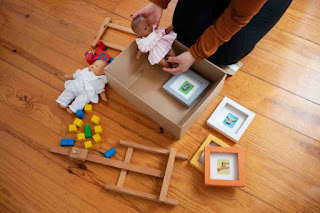Wooden Puzzles: Enhancing Cognitive Skills in Children
Nowadays, where curiosity knows no bounds, wooden puzzles like Wooden puzzle set are timeless companions, not just for play but for the remarkable development of cognitive skills in children. These simple yet interesting pieces of wood hold a special place in the journey of early education, weaving together fun and learning seamlessly.
The Joyful Learning Experience
Wooden puzzles offer more than just entertainment; they provide a joyful learning experience for children. As little hands explore the different shapes and sizes of puzzle pieces, young minds engage in a process of discovery. The satisfaction of fitting the pieces together creates a positive reinforcement loop, making learning an enjoyable adventure.
Fine Motor Skills
The act of picking up, rotating, and fitting puzzle pieces into their designated spaces involves intricate hand-eye coordination. As children manipulate the wooden pieces, they refine their fine motor skills – a crucial aspect of early childhood development. These seemingly simple movements lay the foundation for tasks like writing, tying shoelaces, and other dexterous activities.
Spatial Awareness and Problem-Solving
Wooden puzzles often present children with spatial challenges, encouraging them to analyze and understand the relationships between different pieces. As they figure out where each part fits, children develop spatial awareness and hone their problem-solving abilities. These skills extend beyond puzzle-solving, benefiting them in subjects like mathematics and geometry.
Shape and Color Recognition
Wooden puzzles come in an array of shapes and colors, providing a vibrant palette for learning. By matching colors and identifying shapes, children not only build their visual discrimination skills but also lay the groundwork for more advanced concepts. This early exposure to basic geometry sets the stage for understanding complex mathematical principles in later years.
Patience and Persistence
Completing a wooden puzzle requires patience and persistence, virtues that are invaluable in all aspects of life. As children encounter challenges in finding the right piece or fitting it into place, they learn to persevere through trial and error. This resilience is a powerful life lesson that goes beyond the boundaries of puzzle play.
Social Interaction and Collaboration
Wooden puzzles are not confined to solo adventures; they become a catalyst for social interaction and collaboration. When children work on puzzles together, they learn to share, communicate, and collaborate towards a common goal. These cooperative experiences foster the development of essential social skills, including teamwork and effective communication.
Screen-Free Learning
In a digital age dominated by screens, wooden puzzles offer a refreshing and screen-free alternative for early education. This tactile and tangible form of learning helps reduce screen time, allowing children to engage with the physical world around them. It promotes a healthy balance between technology and traditional play, encouraging a holistic approach to learning.
Quality and Durability
Wooden puzzles are often crafted with precision and durability in mind. The sturdy wooden pieces withstand the rigors of enthusiastic play, ensuring that the puzzle set becomes a lasting companion throughout a child's early years. This longevity makes wooden puzzles an eco-friendly choice, contributing to sustainable and environmentally conscious parenting.
Choosing the Right Puzzle
When selecting a wooden puzzle for a child, consider age-appropriate options with larger, chunkier pieces for younger children and more intricate designs for older ones. Themes can range from animals and nature to letters and numbers, catering to diverse interests and learning objectives. A well-chosen puzzle becomes not just a toy but a tool for nurturing a child's cognitive development.
Conclusion
Wooden puzzles, with their simplicity and versatility, are more than just playthings; they are gateways to a world of learning for young minds. From fine motor skills to problem-solving, spatial awareness, and social interaction, these wooden wonders contribute significantly to a child's cognitive development. In a world where educational toys abound, wooden puzzles stand tall, offering a timeless and enriching experience that leaves a lasting impact on the growing minds of our children.
Source Link - https://vocal.media/gamers/wooden-puzzles-enhancing-cognitive-skills-in-children




Comments
Post a Comment